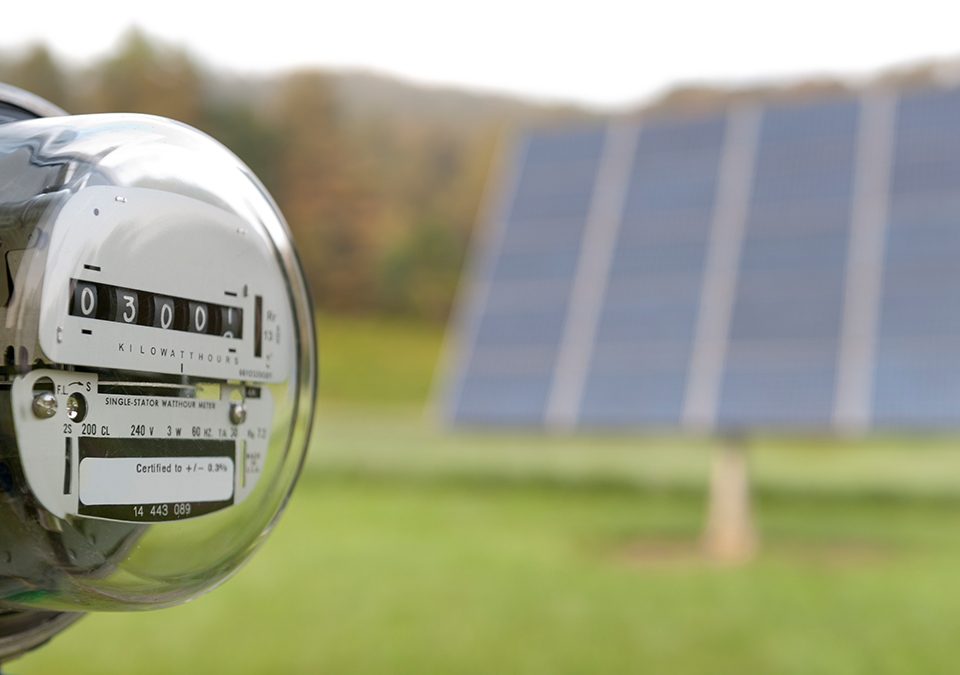OP-Ed: Robbing Peter to Pay Paul, Even More -Arkansas Public Service Commission rules that all ratepayers must subsidize solar owners
U.S. Acts to Secure Domestic Sources of Rare Earth Minerals
July 17, 2020Kiwis Look to Pumped Storage to Meet Climate Goals
July 29, 2020Energy Fairness is pleased to present the following op-ed from Sandra Hochstetter Byrd regarding the Arkansas Public Service Commission’s June 1, 2020 order on net metering. Sandy is the Vice President of Public Affairs & Member Services for the Arkansas Electric Cooperative Corporation. She is also a former Chairman of the Arkansas Public Service Commission (2000-2007).
On June 1, 2020, after more than four years of filings and hearings, the Arkansas Public Service Commission (PSC) issued a 671-page order that established a regressive fiscal policy that could be summed up as “Robbing Peter to Pay Paul, Even More” — otherwise known as “let’s make all Arkansans, in the 2nd poorest state, subsidize the minimal number of other Arkansans who can afford solar panels”. In a nutshell, the Arkansas PSC ruled that residential customers who want to install solar facilities up to 25 kilowatts (kW), and non-residential customers up to 20 megawatts (MW), will get paid for their power more than three times higher than the price utilities buy it for from wholesale power markets. Since the average rate of delivered electricity in Arkansas is 10 cents per kilowatt-hour, but the value of the excess energy put back on the grid is approximately 2 cents per kilowatt-hour, this is a huge windfall, and a clear subsidy, to those who install solar panels at the expense of everyone else.
When the average solar installation at a home is roughly $5000/kW, and it costs up to $3.5 million for a 1 MW non-residential facility, why, you might wonder, would public servants of the second-poorest state in the nation force the state’s residents to subsidize the wealthier folks who can afford to purchase solar facilities?? The justification that has routinely, and publicly, been given by the current PSC Chairman, Ted Thomas, can be summarized as this: “the more solar energy we can deploy, the less fossil fuels we will need one day, so we won’t have to pay as much of a carbon tax in the future”. And to bring about this deployment, the Commission has decided – in the absence of state legislative action – to pay these individuals a triple premium for the excess energy under a “first adopter risk” ideology, which switches the risk away from the rich investor and onto everyone else in Arkansas who pays their electric bill.
This so-called first adopter mitigation approach begs the questions: 1) whether carbon restrictions will, in fact, be implemented in the future, and, if so, 2) who gets to decide how Arkansas prepares for that policy change. Granted, at some point in the future there may be a carbon tax or cap-and-trade regime that is veto-proof, but we certainly don’t have that dynamic now and it is baseless to decide that all Arkansans should bear that potential cost or whether this approach would help anyway. The logic of implementing a highly subsidized solar net metering regime based on some as-yet unproven belief that this supports “innovation” cannot unwind the harm to the poor for the benefit of the rich. Said another way, solar has been around since the 1950s, and the current approach does not spur innovation because that innovation is happening anyway. In short, this policy is fiscally regressive and ill-advised. Arkansas ratepayers are poor enough as it is; we don’t need a public policy that exacerbates that reality with no appreciable gain.
No one would deny the fact that a diversified power portfolio is a good thing — we need to embrace a variety of energy supplies to maintain reliability and affordability and hedge against future risks. But implementing a regressive net metering social policy that creates winners and losers by hurting the poorest among us is plain unfair and inequitable. And this is all the more concerning when it is implemented in a state with a median per capita income of less than the cost of a single solar installation. Hopefully, the Arkansas state legislature will address this travesty in 2021 and make it clear that the public service commission should stop forcing all other ratepayers to subsidize the personal financial investment decisions of private individuals or businesses. Without such intervention, Arkansas will walk even further down the same path previously taken by other states that chose to implement an exorbitant net metering rate, only to later have to walk it back to one that is actually fairer to all.
As I am writing this, I am thinking back to the time when I served as Chairman of the Arkansas Public Service Commission (2000-2007), also appointed by a Republican Governor. My guidepost during my time in that position of public trust was to do everything in my power to prevent the implementation of bad public policy that would increase rates to Arkansans, particularly those who already struggled to pay their bills. Retail electricity deregulation of the late 90s was one of those policies, which some folks thought was “foresightful”. As it turned out, those states which adopted the deregulation business model ended up having some of the highest rates in the country. Fortunately, with a lot of lobbying and support, we were able to get that legislation repealed before it became law. Unfortunately, the consequences of the recent actions by this commission may reverse those Herculean prior efforts just to help certain lobbyist groups find a back door to destroy the public utility model. And all the while, the result is ushering in higher energy costs (and no material change in the overall energy mix) in the process.
While new technology or business models can be great, private investments in those technologies should not be subsidized by others through their public utility rates, particularly those without a vote and without the financial means to do so. Those who wield power have a serious and important fiduciary duty to protect the most vulnerable. And those of us who care about that segment of our population need to speak up and speak out — and encourage others to do the same.
Online recommendations
- Non Gamstop Casinos
- Casino Non Aams
- Casino Online Nuovi
- Casino Non Aams
- Slot Sites UK
- Non Gamstop Casino
- UK Online Casinos Not On Gamstop
- UK Online Casinos Not On Gamstop
- Casino Sites Not On Gamstop
- Online Casinos
- Best Non Gamstop Casinos
- Non Gamstop Casino Sites UK
- Non Gamstop Casinos UK
- UK Betting Sites Not On Gamstop
- Casinos Not On Gamstop
- Non Gamstop Casinos
- Non Gamstop Casinos
- Best Non Gamstop Casinos
- UK Online Casinos Not On Gamstop
- Casino Sites Not On Gamstop
- Non Gamstop Casino
- Casino Not On Gamstop
- Casinos Not On Gamstop
- New Non Gamstop Casinos No Deposit Bonus
- Casino Non Aams
- Migliori Casino Online
- Crypto Casino
- Meilleurs Sites De Paris Sportifs Belgique
- Casino Con Prelievo Visa
- Site De Poker En Ligne Francais
- Meilleur Site De Paris Sportif Hors Arjel
- 出金早いオンラインカジノ
- Casino En Ligne
- Casino En Ligne
- オンラインカジノサイト
- Casinos En Ligne France
- Bitcoin Casino Italia
- Casino En Ligne
- Nuovi Siti Scommesse Online


